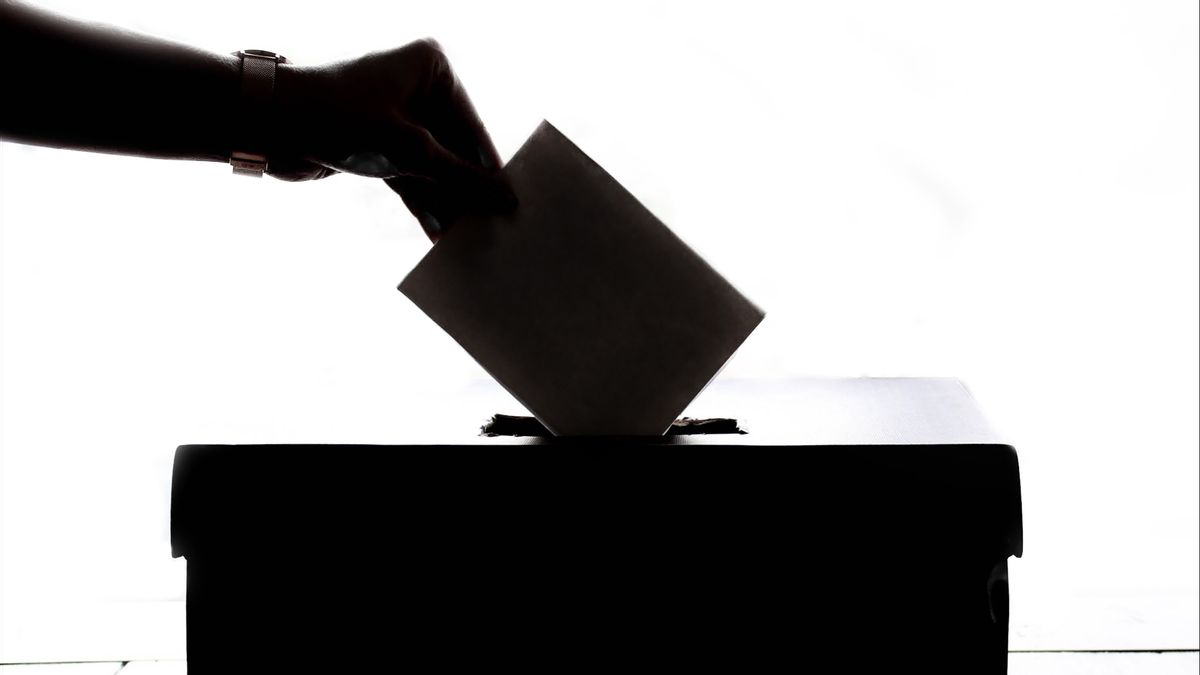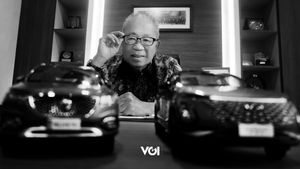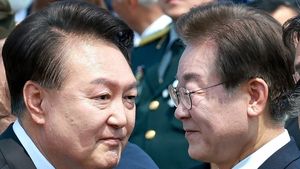JAKARTA - PDI Perjuangan recommends again the method of selecting members of the legislature through a closed proportional system. The PDIP faction in the DPR will fight for this so that the Election Law can be revised in accordance with party recommendations.
This proposal has pros and cons. Because, according to Law Number 7 of 2017, elections in Indonesia use an open proportional system, which means that people who have the right to vote can directly elect parties and candidates who will sit in parliament.
Meanwhile, the definition of a closed proportional system is that the community only chooses parties participating in the election and parties that determine their cadres to sit in the DPR.
A political observer from Al-Azhar University Indonesia, Ujang Komarudin, said the recommendation submitted by the PDIP after the 1st Rakernas on January 12 was a step backwards. Because, he said, this system would lead to unhealthy competition between legislative candidates.
"This is a step backwards and there will be no healthy competition among candidates. Because the candidates who will (enter the DPR) have already been determined by the party," Ujang told VOI reporters via text message, Tuesday, January 14.
In addition to creating unhealthy competition, according to Ujang, this closed proportional system will foster an oligarchy and political dynasty. "Later the core circle will be party owners, children, wives, husbands, brothers, sisters, uncles, and others," he said.
Contacted separately, LIPI political observer, Aisah Putri Budiarti, assessed that discussions about the proportional electoral system often occur every time the formulation of revisions to the Election Law will be carried out.
Moreover, most parties think that the open proportional electoral system will actually cause quite tough competition. Apart from the matter of competition, this kind of open electoral system also makes election costs more expensive, especially for campaign costs.
"This is of course burdensome for the party while limiting the role of the party in this case, namely the position of the party which is only limited to determining the candidate and serial number but cannot determine the elected candidate," said Putri.
Reflecting on this assumption, it's no wonder that the PDIP has the tendency to change the current electoral system.
However, Puput gave another perspective. He said, before replacing the electoral system, the government should re-evaluate the system that is already running in full, not just in legislative elections.
"From the evaluation, we will then know the weaknesses of our combination of election systems so far, how the results and the impact," he said.
After conducting an evaluation and knowing about the impact, Puput assessed that the government could determine the best choice and combination of systems for future elections. "Policy makers must think about the direction of the election format and what results are expected to be the basis for choosing the best system," he stressed.
Looking for the best formula
Gerindra Party politician Andre Rosiade is still studying the election proportional system which is best applied in the next period. He wanted the rules to be made not detrimental to the people.
"The Gerindra Party is still studying the most appropriate, most appropriate for the year 2024. How do the people feel that they are not harmed by their voting rights and the party can play the best role for the nation's democratic life," Andre said when contacted by VOI, Tuesday, January 14.
Meanwhile, a politician from the Golkar Party, Dave Laksono, said that a closed electoral system is better to be implemented. This is because parties have control over which legislative candidates will be placed in parliamentary seats.
"With a closed proportional (electoral system), parties really determine who will become or not," he said at the Parliament Complex, Senayan, Central Jakarta, Tuesday, January 14.
However, he continued, the electoral system should indeed be carried out in an open proportion so that the public could more freely choose their representatives.
"The political parties have already screened them but all those who are nominated have a quality assurance stamp from the party. When they were nominated, the people decided and there the people were convinced by the candidates," he said.
Meanwhile, Deputy Chairperson of the Democratic Party, Syarief Hasan, assessed that instead of debating an open and closed proportional system, it would be better if the future electoral system would combine the two.
"We are aware that open proportionality also creates problems, but closed proportions also create new problems because of democracy. Perhaps the better combination is between open and closed," said Syarief.
This method of merging, he said, could be done by means of a division involving parties. "Maybe a certain percentage of seats is the right of the party, but the rest is open. Maybe so, but the system is also adopted by several countries," he explained.
After the PDIP First National Meeting was held, the party bearing the bull symbol produced nine external recommendations. One of them is asking the PDI Perjuangan DPR RI faction to fight for changes to the Election Law to return the Indonesian Election back to using a closed proportional system and to increase the parliamentary threshold by at least 5 percent.
"The First National Meeting of the PDI Perjuangan 2020 recommends the DPP Party and the DPR RI faction PDI Perjuangan to fight for changes to the Election Law to return the Indonesian Election to using a closed list proportional system, increasing the parliamentary threshold by at least 5 percent," said PDIP Secretary General Hasto Kristiyanto after the event the event on January 12 last.
The English, Chinese, Japanese, Arabic, and French versions are automatically generated by the AI. So there may still be inaccuracies in translating, please always see Indonesian as our main language. (system supported by DigitalSiber.id)









